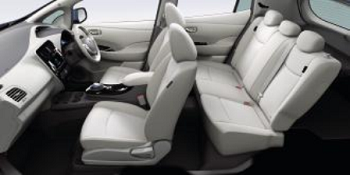Nissan's Leaf opts for bioresin-based seats and interior trim
A bioresin that is 30% based on biofuels derived from sugarcane has found a home in the seats and interior trim surface of the latest version of the Nissan Leaf electric vehicle. The resin is supplied by Teijin Limited (Osaka, Japan).
November 28, 2012
A bioresin that is 30% based on biofuels derived from sugarcane has found a home in the seats and interior trim surface of the latest version of the Nissan Leaf electric vehicle. The resin is supplied by Teijin Limited (Osaka, Japan).
|
The Leaf's door trim, headrests and center armrests go |
This represents the first success in vehicle interiors for Teijin's Eco Circle Plantfiber bio-polyester resin. The seat and interior trim surface were co-developed by Teijin, automotive seat manufacturer Suminoe Teijin Techno Co. Ltd. and Nissan Motor. Specifically, Eco Circle Plantfiber polyethylene terephthalate (PET) resin is used for the seats, parts of the door trim, headrests and center armrest.
Teijin has been expanding Eco Circle Plantfiber's global market for applications ranging from apparel, car seats and interiors to personal hygiene products. The company aims to increase sales to over 50% of its total polyester fiber sales for automotive seats and interiors by 2015.
In 2010, Teijin announced that it was targeting sales of 30,000 tonnes of Eco Circle Plantfiber products in the initial fiscal year of production ending in March 2013, and 70,000 tonnes by the third year of business.
About the Author(s)
You May Also Like



